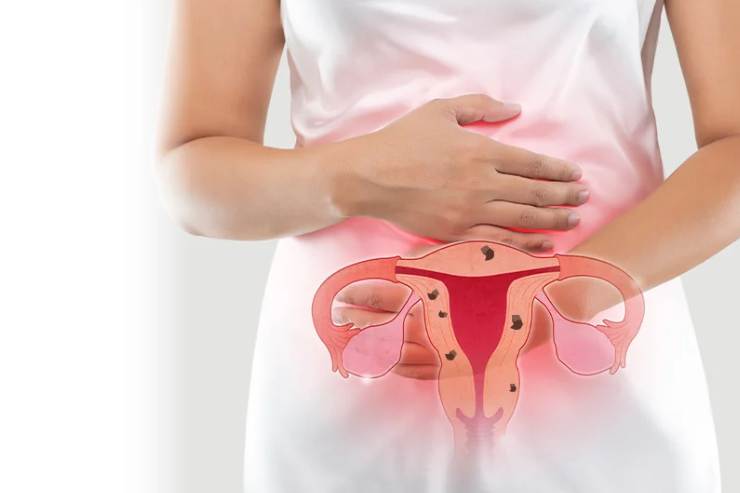Adenomyosis Treatment
Adenomyosis Treatment
Adenomyosis is a condition where the inner lining of the uterus (endometrium) breaks through the muscle wall of the uterus (myometrium). This can lead to heavy, prolonged menstrual bleeding, pelvic pain, and discomfort. Fortunately, there are several treatment options available to manage adenomyosis and alleviate its symptoms.

1. Medications
a. Nonsteroidal Anti-Inflammatory Drugs (NSAIDs): Over-the-counter pain relievers like ibuprofen can help alleviate the pain associated with adenomyosis. They also help reduce menstrual bleeding.
b. Hormonal Therapy: Birth control pills, hormone-containing patches, or hormonal intrauterine devices (IUDs) can help regulate menstrual cycles and reduce heavy bleeding and pain.
c. Gonadotropin-Releasing Hormone (GnRH) Agonists: These medications temporarily induce a menopause-like state, reducing estrogen production and shrinking adenomyosis-related tissue. However, they’re typically used for short periods due to their side effects.
2. Minimally Invasive Procedures
a. Uterine Artery Embolization (UAE): In this procedure, tiny particles are injected into the arteries supplying blood to the uterus, blocking the blood flow to adenomyosis-affected areas and causing them to shrink.
b. Endometrial Ablation: This procedure removes or destroys the endometrial lining of the uterus, reducing menstrual bleeding. It’s not suitable for women who wish to conceive in the future.
3. Surgical Options
a. Hysterectomy: In severe cases where other treatments fail or for women who have completed their family, a hysterectomy may be recommended. This involves surgical removal of the uterus and possibly the cervix.
b. Adenomyomectomy: This surgical procedure involves removing the adenomyosis-affected areas of the uterus while preserving the uterus itself. It’s an option for women who want to maintain their fertility.
4. Lifestyle and Home Remedies
a. Heat Therapy: Applying heat to the abdomen can help alleviate pelvic pain and discomfort associated with adenomyosis.
b. Stress Management: Stress can exacerbate symptoms, so techniques such as yoga, meditation, or deep breathing exercises may help manage symptoms.
About Us
Gynecological consultations at Ashirwad Clinic are a cornerstone of its services. With expertise in addressing a myriad of women's health concerns, the clinic offers a safe and welcoming environment for patients to discuss their needs. Whether it's managing menstrual irregularities, diagnosing PCOD.
Quick Contacts
- Address : Shop No-2, A-53, opposite Patanjali Store, Swarna Jayanti Nagar, Aligarh, Uttar Pradesh 202001
- Phone : +91 7906148352, 9871165086.
- Email : ashirwadclinic@gmail.com
- Country : India
